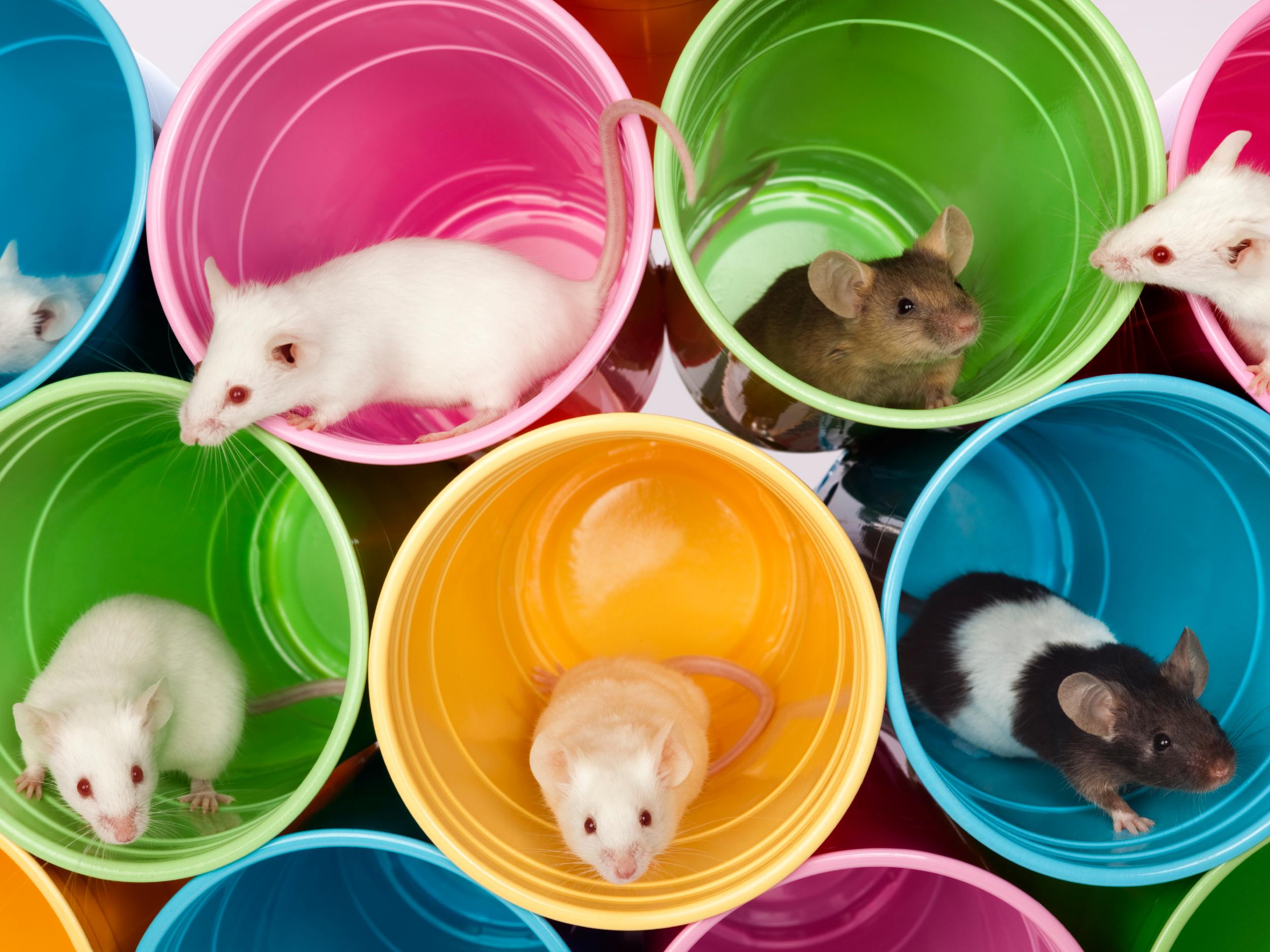Scientist genetically alter mice to make them stutter in study that could help human sufferers
The GM mice squeaked with longer pauses and a repetitive staccato pattern, similar to the sounds made by people who stammer

Your support helps us to tell the story
From reproductive rights to climate change to Big Tech, The Independent is on the ground when the story is developing. Whether it's investigating the financials of Elon Musk's pro-Trump PAC or producing our latest documentary, 'The A Word', which shines a light on the American women fighting for reproductive rights, we know how important it is to parse out the facts from the messaging.
At such a critical moment in US history, we need reporters on the ground. Your donation allows us to keep sending journalists to speak to both sides of the story.
The Independent is trusted by Americans across the entire political spectrum. And unlike many other quality news outlets, we choose not to lock Americans out of our reporting and analysis with paywalls. We believe quality journalism should be available to everyone, paid for by those who can afford it.
Your support makes all the difference.Mice have been genetically modified to stutter by scientists looking for new ways to treat human speech disorders.
Nervousness, stress and even bad parenting have previously been said to cause stammering. However, the principal cause of the impediment is now understood to be biological, with anxiety exacerbating the disorder.
The GM mice were given same mutant version of a gene linked to human stammering – called Gnptab, which was the cause of the problem that famously plagued King George VI.
They were found to squeak with longer pauses and a repetitive staccato pattern as a result of the genetic changes. They also produced nearly a third fewer sounds and more single syllable sounds than mice without the mutated gene.
Scientists found “abnormalities that mimic some features of human stuttering,” said Dr Terra Barnes, a scientist at Washington University School Medicine in St Louis, whose research was published in the journal Current Biology.
After being put through a range of tests measuring factors including balance, strength, co-ordination, movement, leaning, memory and sociability, the mice were found to be otherwise healthy and normal in every other respect.
"One of the things we find scientifically interesting about stuttering is that it is so precisely limited to speech, It’s a very clean defect in an incredibly complex task,” said Dr Tim Holy, associate professor of neuroscience at Washington University.
In 2010, researchers found mutations in the gene Gnptab appeared to cause stuttering in some people. The discovery was surprising as the Gnptab gene’s primary role is to help cells dispose of unwanted molecules.
“It’s kind of crazy that this gene that’s involved in digesting the garbage in your cells is somehow linked to something so specific as stuttering,” said Dr Holy. “It could be that the protein has many functions and this mutation affects only one of them.”
The work in mice could lead to a new understanding of stuttering and ultimately to treatments that could help millions of people around the world who are affected by the problem.
Dr Holy said: “Speech is obviously a unique human capacity, but the patterns of speech are built out of a lot of building blocks that are much simpler.
“You have to be able to control the timing of your breath and the fine muscles in your tongue and mouth. You have to be able to initiate movement. Those kind of things may be shared all the way from mice to people.”
Dr Dennis Drayna, a geneticist with the National Institute on Deafness and Other Communication Disorders, said: “While it's surprising that the disorder can, to some degree, be recreated in a mouse, having an experimentally tractable animal model for some aspects of this disorder presents many exciting, new opportunities to move research in this area forward."
Join our commenting forum
Join thought-provoking conversations, follow other Independent readers and see their replies
Comments